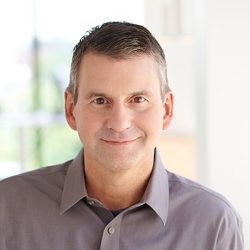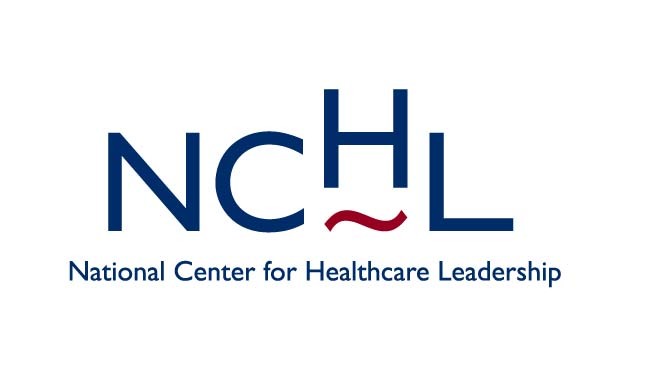
LeAnn Swanson has been the CEO of the National Center for Healthcare Leadership (NCHL) for less than a year, but during her short tenure has already experienced a pandemic that brought the industry to crisis levels.
Flywire is a long-time member of NCHL and John Talaga, our EVP of Healthcare, joined NCHL’s Board back in April 2020. We caught up with LeAnn to find out more about her organization and its mission, and her views on how the Covid-19 is impacting the industry, and more its leaders.

Tell us about the NCHL
NCHL’s general mission is to advance healthcare leadership and organizational excellence by building diverse, inclusive and collaborative relationships in the US and abroad. We know that great leadership drives quality healthcare, and it’s more important than ever to have strong healthcare leaders. By supporting the advancement of evidence-based leadership and organizational best practices and making them accessible, the NCHL strives to advance excellence across the healthcare industry. This year presents a pivotal time for our organization – we have an immense opportunity to grow and have more of an impact for our program members.
The NCHL also started the US Cooperative for International Patient Programs (USCIPP), a consortium of US academic medical centers and health systems that work with international patients, providers, hospitals, governments, and other partners. Unfortunately, the pandemic has caused international concerns that our health system isn’t up to the task. There is some image-rebuilding that needs to be done. Through new marketing and branding efforts we can change mindsets that the US is, and has always been, a strong global health leader.
The NCHL offers an array of programming for its members, from conferences to high value research reports. What initiatives are you most proud of?
We pride ourselves on three premier programs. One is the Leadership Excellence Networks (LENS), which gives our members a variety of networking and professional development opportunities to address leadership development and talent management. The second is the National Council on Administrative Fellowships (NCAF) aims to improve early-career development opportunities for the next generation of healthcare leaders. The NCAF offers a centralized application service to simplify the application process for fellowship applicants and administrative fellowship sites. Third is the group I just spoke about, the USCIPP – our international patient program, which has grown tremendously. We have 70% of the market share in this space, including some of the best-known hospitals in the country, such as Mayo Clinic, Cleveland Clinic, Mass General Brigham, MD Anderson, and many others. These hospitals compete, but membership introduces them all to peer-to-peer benchmarking as well as international business development opportunities to work with hospitals and other partners in China, the United Arab Emirates, Saudi Arabia, Mexico, and many other countries worldwide.
The NCHL membership comprises groups from across the healthcare industry from insurance providers to payment providers (like Flywire) to those on the provider/care side. Why do you think it's important to bring this combination of sectors together?
Our cross-industry membership is really what makes the NCHL so unique. There are other organizations that provide healthcare leadership, but what differentiates us is that we bring collaborative relationship building to help cultivate a culture of leadership in a healthcare system. Our Board of Directors is comprised of people with very diverse backgrounds, just like our members. My background is in public health, and if I think about every single healthcare leader out there, they have a different story to explain how they came to be a leader.
I can imagine that you're fully immersed in helping your members navigate the COVID-19 crisis. What have been the most common challenges you're helping them to address?
When the pandemic began, our council calls were primarily focused on COVID. We have been listening and responding to our members’ needs. COVID has definitely introduced unique challenges, and for each of the councils we serve, there are different issues. Our LENS group is finding that we need to think more about longer-term healthcare needs – addressing PTSD, resiliency and wellness, for example. The pandemic also has shut down fellowships and internships. Where will we place our fellows? Hospitals can’t accept them, so how will they get the experience they need? The USCIPP is also concerned with how international travel restrictions impact patient programs and telemedicine.
At Flywire, we are working with our clients on COVID-19 relief payments - to help them better manage financial risk. Are you engaging in more conversations around the affordability gap in healthcare due to COVID?
While equity inclusion is a central theme in our discussions, the affordability gap hasn’t been at the top of our conversations…yet. We’ve been so focused on employee health and wellness through COVID. Affordability is very relevant though. Better understanding a patient’s ability to pay and meeting their financial needs is an important discussion for us to have.
From an industry perspective, what longer term changes - for better or worse - do you think COVID will bring upon healthcare?
For better, we now truly understand the limits of our healthcare system. Also, all the uninsured patients, and their inability to pay have had a huge economic impact that we can learn from. Telehealth has finally gone mainstream, being rapidly adopted across providers. But we encourage hospitals to think about telehealth across lines of service – not as just a niche offering.
For worse, COVID has revealed some things that our industry needs to do better. Some health systems couldn’t financially survive COVID and are consolidating or closing. When you shut down elective surgeries, that’s your bread and butter. We also must think about the long-term effects of PTSD on the care providers. It is only beginning – because they are still fighting the war. To bring it back to NCHL - more than ever, we need strong healthcare leaders. One of my board members told me that they needed to conduct layoffs within their organization, but she was told by one of her senior leaders that he didn’t know how to do it. This is the kind of thing we need to do better, offer training for leaders so they can be prepared for the next crisis.
What's on the horizon for NCHL that we should keep our eyes out for?
These are trying times, but as the CEO, I’m in a position to help us to stay strong and help our healthcare leaders as they navigate a new era of healthcare. We are focusing on meeting the needs of our program members and will continue to explore programs and offerings to help them meet their needs and mission. For example, our LENS program has developed a new Well-being council to address workplace resiliency and wellness.
We continue to focus on how we can promote leadership excellence and ensure we are ready to do that. We recently adopted a new mission and value statement to ensure our work focuses on efforts to improve healthcare. For our USCIPP program, we are looking to foster relationships with governmental agencies, NGOs, and the private sector in countries all over the world. A key driver going forward will be focused on strengthening cross-border telemedicine.
NCHL is still bridging those virtual collaborations; we just had a virtual international partnership forum focused on pathology and radiology in China, and we are working on two more similar forums for the spring that will be focused on Mexico. Cross-border telemedicine will feature prominently in all of USCIPP’s 2021 programming and activities.
Those in the industry that will survive the crisis COVID has created are the ones looking towards the future. The NCHL will be there to provide guidance and resources as we forge on.
